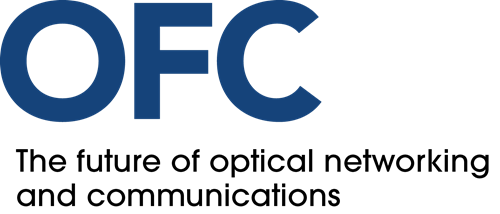15 Mar 2026
13:00 - 15:30
Room 408A
As the demand for resilient, intelligent, and perceptual optical infrastructure continues to grow, fiber sensing and in-service network tomography are emerging as a promising path toward achieving comprehensive visibility—not only of the fiber network itself, but also of the physical environments it traverses. Fiber sensing technologies have demonstrated the ability to detect seismic activity, temperature variations, and acoustic signals over long distances, enabling possibilities for dual-purpose infrastructure that supports both high-speed data transmission and real-time environmental monitoring. At the same time, coherent-DSP-based link tomography is redefining how we observe and manage in-service fiber networks, offering new means for monitoring distributed link parameters, diagnosing performance of networks, detecting localized impairments—all without deploying intrusive hardware.
While both fiber sensing and link tomography have demonstrated impressive capabilities in field trials and demos, the question remains: are they ready to meet the demands of real, heterogeneous, and large-scale networks? This workshop will explore the technical maturity, practical feasibility, and deployment potential of fiber sensing and tomography technologies and assess whether these advanced monitoring techniques are academic curiosities or true game-changers in the way we use optical networks.
The key questions to address in this workshop are:
- What are the current limitations and readiness levels of fiber sensing and tomography technologies for real-world deployment?
- Can fiber sensing and tomography provide actionable insights and use cases for network operators?
- In what ways does tomography complement or overlap with traditional monitoring systems such as OTDR or optical channel monitor (OCM)?
- How are early signs of standardization, commercialization, or network integration beginning to emerge?
Organizers
-
Annika Dochhan
Christian-Albrechts Universität zu Kiel, Germany
-
Ming-Fang Huang
NEC Laboratories America Inc., United States
-
Alan Pak Tao Lau
Hong Kong Polytechnic University, Hong Kong
-
Darli Mello
UNICAMP, Brazil
-
Takeo Sasai
NTT, Japan
Speakers
-
Antonio Napoli
Nokia, Germany
-
Biondo Biondi
Stanford, United States
-
Yasuhiko Aoki
1Finity, Japan
-
Gabriella Bosco
Politecnico di Torino, Italy
-
Choloong Hahn
Huawei Technologies Canada, Canada
Choloong Hahn received his Ph.D. in Physics from Hanyang University, Seoul, South Korea, in 2015. In 2016, he began postdoctoral research at the Centre for Research in Photonics, University of Ottawa, Canada. He later joined Huawei Canadian Research Institute in Ottawa as a Senior Optical Engineer. His research focuses on fiber optical communication systems, performance monitoring/optimization, and fault identification/localization.
-
Zuyuan He
Shanghai Jiao Tong University, Chile
-
Philip N. Ji
NEC Laboratories America Inc., United States
Philip N. Ji is a Senior Researcher at NEC Laboratories America, Princeton, NJ, USA, where he has been researching optical networking and sensing technologies since 2001. Before that he engaged in special polymer fiber and device research at the University of New South Wales, Australia, where he received Ph.D. degree in Electrical Engineering and Telecommunications. His research interests include fiber optic sensing, WDM switching node and network architecture, fiber optic devices for communication, high-speed and high-capacity optical transmission, and optical data center interconnects. He serves as the coordinator of fiber sensing task force in IOWN Global Forum.
-
Jeff Mundt
Verizon, United States
Jeff Mundt is Sr. Director of Optical Transport Planning at Verizon leading teams responsible for PON networks, passive devices (fiber cable, handholes, etc), and Metro/ULH transport networks since 2025. Prior to this role, he worked at Verizon for 33 years in various Engineering and Network Planning roles of increasing responsibility in Submarine Cable systems, the OTN Mesh network, and OSS integration planning. Jeff is based at Verizon's Transport lab in Richardson, Texas, USA.
-
Seb Savory
University of Cambridge, United Kingdom
-
Etsushi Yamazaki
NTT, Japan
